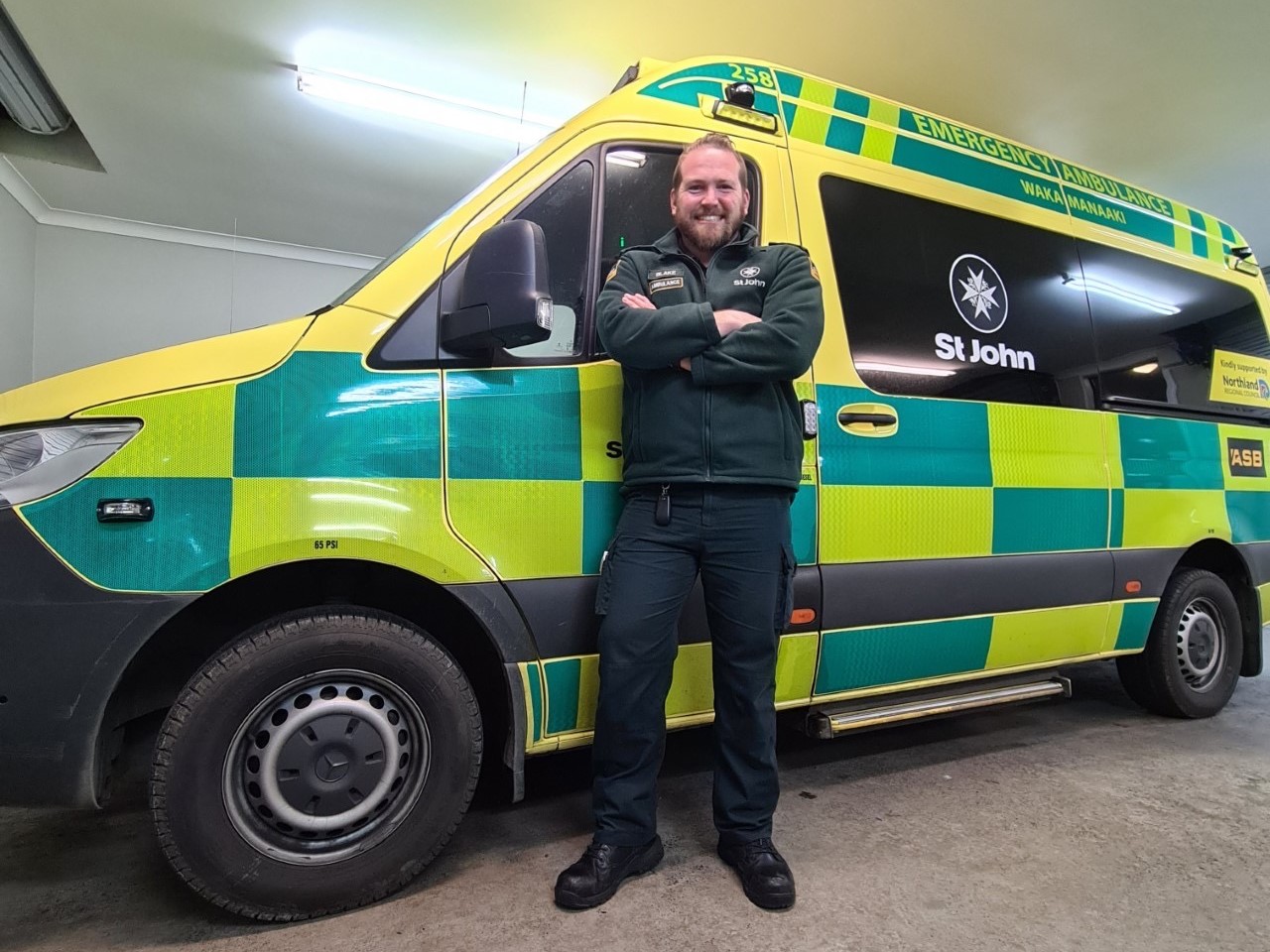
Wondering what happens if you need an ambulance during lockdown?
Blake Murray from St John answers your questions.
Tell us about yourself and how you're going during lockdown.
My name is Blake Murray and I work for St John in Northland as a district relief paramedic. This means that I work all over Northland covering other paramedics when they are on leave. I also work on the Northland Rescue Helicopter. I am doing well currently, but I’m also missing seeing my kids during this lockdown as they live in another region.
What does your job look like during lockdown? What should people expect if they call an ambulance?
As an emergency ambulance service, we are always ready to respond to medical emergencies no matter the alert level we are in. We will continue to send the most appropriate emergency vehicle to the patient in greatest need as soon as possible. The public can be assured that if they call 111 for an ambulance, they will continue to get the same standard of response they always get from St John.
When calling 111 for an ambulance, St John asks the public to inform the emergency call handler if the patient, or anyone else at the address, is in self-isolation or has been exposed to a person who may have COVID-19. This will help our ambulance crews make the best decisions about infectious disease precautions.
A visible change people will see during this time is the additional use of personal protective equipment (PPE) by our ambulance officers. Our frontline staff are routinely wearing masks whenever they’re at work, including taking breaks at station, and staff have varying scales of protection depending on the nature of the emergency. Patients will notice a few other changes, such as ambulance officers routinely stopping before entering an incident to ask screening questions about COVID-19. This is an important step for the safety of everybody as we try to contain the spread of this virus.
Do you want people to seek help if they need it?
We still want people to call 111 for an ambulance in an emergency. I have personally encountered patients who have delayed or refused to call an ambulance because they are scared of contracting COVID-19 if they are taken to a hospital. This can have a negative effect on their medical condition, particularly if they have a problem which is time critical, such as a heart attack or stroke. If members of the public are not sure if their condition is serious, they can also contact Healthline or their own GP or health provider in the first instance.
How do you treat people who need medical attention after using drugs? Do you get the Police involved?
The treatment we provide our patients is based on their symptoms and depends on whether we are treating the drug use itself, such as in an overdose, or whether we are treating a patient who has for instance, injured themselves while under the influence of drugs or alcohol. Many patients on drugs and/or alcohol can still be cooperative and respectful. We do not routinely get New Zealand Police involved unless there are concerns for the safety of our ambulance officers or others at the scene. We take assaults or abuse on our staff seriously and NZ Police will be involved where needed, but it is important to distinguish that our role is to treat the medical emergency present.
Anything else you want to let us know?
This is an unusual time we face. If you find yourself facing the urge to reach towards drugs or alcohol more than you usually would, to help you cope, we encourage you to contact some of the many free support services that are available throughout New Zealand.
And finally, please be kind to my colleagues and all other essential workers out there. We are all working hard during this difficult time to continue to be there for New Zealanders.
Related stories
Recent stories
Fill me in: Common drug fillers and binders
Drugs are often diluted or ‘cut’ with fillers, like lactose or sugar. We take a look at some of the most common fillers and what the risks are.
What we learnt from checking 2602 drugs last year
Nearly 1 in 5 drugs were different to what the person thought they had
Still Tripping: What is HPPD?
Ever heard of acid flashbacks? Had visuals while sober that remind you of tripping? There’s a term for this: Hallucinogen Perception Persisting Disorder (HPPD).